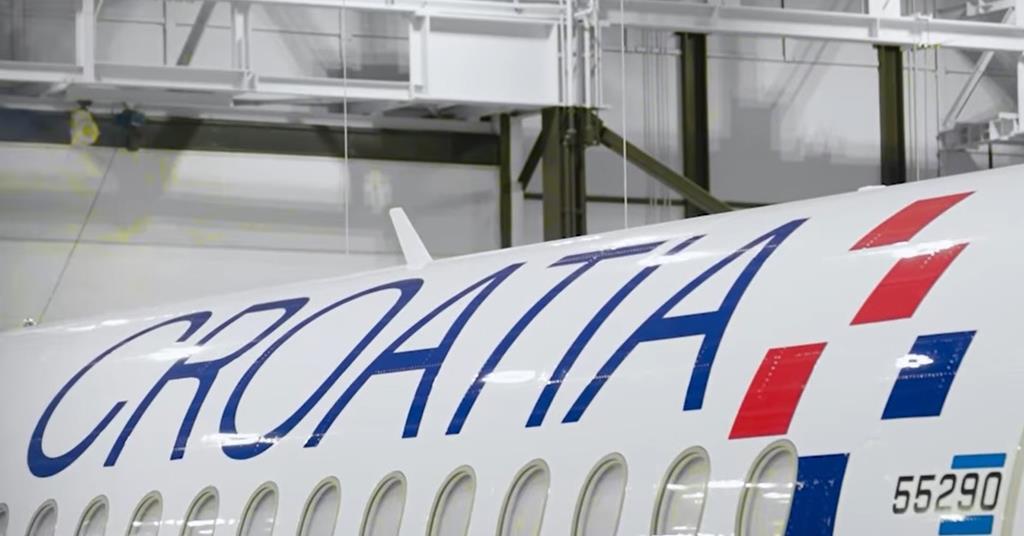Estonian government turns down Air Baltic share offer as it seeks to develop Tallinn hub
Company
Legal Links
Contact
- +44 7947 753363
- contact@skylineairporttransfers.co.uk
- 6 Walsall Street Bilston Wolverhampton WV14 0AT
Recent Posts
© Skyline Airport Transfers. Created by![]() Beaphoenix WebDesign ltd
Beaphoenix WebDesign ltd
Popular Locations:
Birmingham: Aston, Bournville, Edgbaston, Erdington, Great Barr, Hall Green, Handsworth, Harborne, Northfield, Quinton, Soho, Sutton Coldfield, Amblecote, Brierley Hill, Coseley, Cradley, Gornal, Halesowen, Kingswinford, Lye, Netherton, Sedgley, Stourbridge, Quarry Bank, Bearwood, Blackheath, Cradley Heath, Great Bridge, Old Hill, Rowley Regis, Smethwick, Tipton, Tividale, Wednesbury, West Bromwich, Balsall Common, Bickenhill, Castle Bromwich, Chelmsley Wood, Dorridge, Elmdon, Hampton in Arden, Kingshurst, Knowle, Marston Green, Meriden, Monkspath, Hockley Heath, Shirley, Aldridge, Birchills, Bloxwich, Brownhills, Darlaston, Leamore, Palfrey, Pelsall, Pheasey, Shelfield, Streetly, Willenhall, Bilston, Blakenhall, Bushbury, Compton, Ettingshall, Heath Town, Oxley, Penn, Tettenhall, Wednesfield, Burntwood, Lichfield, Cannock, Rugeley, KIDDERMINSTER, Brierly Hill,
STOURPORT-ON-SEVERN
Coventry: Allesley, Binley, Keresley, Stoke, Tile Hill
Leicester: Abbey Rise, Ashton Green, Aylestone, Beaumont Leys, Bede Island, Belgrave, Blackfriars, Braunstone, Braunstone Frith, Bradgate Heights, Clarendon Park, Crown Hills, Dane Hills, Evington, Evington Valley, Eyres Monsell, Frog Island, Goodwood, Hamilton, Highfields, Horston Hill, Humberstone, Humberstone Garden, Kirby Frith, Knighton, Mowmacre Hill, Netherhall, Newfoundpool, New Parks, North Evington, Northfields, Rowlatts Hill, Rowley Fields, Rushey Mead, Saffron, Southfields, South Knighton, Spinney Hills, Stocking Farm, Stoneygate, St. Matthew’s, St. Mark’s, St. Peters, Thurnby Lodge, West End, West Knighton, Western Park, Woodgate
Derby: Matlock, Ripley, Ashbourne, ILKESTON, SWADLINCOTE , BURTON-ON-TRENT, BAKEWELL,
ALFRETON, BELPER, HEANOR
Telford: Market Drayton, Newport, Shifnal, Broseley, Much Wenlock
Stoke: Stoke-on-Trent, Newcastle, Leek, Uttoxeter, Stone, Stafford
Worcester: Worcester, Droitwich, Pershore, Broadway, Evesham, Malvern, Tenbury Wells
Gloucester: Gloucester, Cheltenham, Stroud, Cirencester, Tewkesbury, Badminton, Berkeley, Blakeney, Chipping Campden, Cinderford, Coleford, Drybrook, Dursley, Dymock, Fairford, Lechlade, Longhope, LydbrookLydney, Mitcheldean, Moreton-in-Marsh, Newent, Newnham, Ruardean, Stonehouse, Tetbury, Westbury-on-Severn, Wotton-under-Edge.
Nottingham: Nottingham, Sutton-in-Ashfield, Mansfield, Newark, Southwell, Grantham, Sleaford
Leicester: Leicester, Hinckley, Loughborough, Melton Mowbray, Oakham Market, Harborough, Lutterworth, Wigston, Ashby-de-la-Zouch, Ibstock, Markfield
Oxford: Oxford, Kidlington, Chipping Norton, Thame, Wallingford, Didcot, Wantage, Abingdon, Banbury, Carterton, Woodstock, Bicester, Witney, Chinnor, Watlington
Chester: Chester, Deeside, Bagillt, Buckley, Holywell, Birkenhead, Preston, Wallasey, Wirral, Neston, Ellesmere Port, Prenton
Airports we serve:
BHX: Birmingham Airport
EMA: East Midlands Airport
LHR: London Heathrow Airport
MAN: Manchester Airport
LGW: London Gatwick Airport
LTN: London Luton Airport
SOU: Southampton Airport
BRS: Bristol Airport
LPL: Liverpool John Lennon Airport
LCY: London City Airport
STN: London Stansted Airport



Estonia’s government has turned down an offer to acquire a shareholding in Air Baltic, as it looks to improve connectivity from the capital’s Tallinn airport.
Latvia’s ministry of transport had disclosed in June that it would make a formal approach to Estonian and Lithuanian governments and airports, inviting participation in Air Baltic’s planned initial public offering.
Transport minister Atis Svinka had stated that all three Baltic states benefited from having “one strong aviation market player”.
Investment from Estonia and Lithuania would “improve the IPO story” of Air Baltic, he added.
Air Baltic has already secured Lufthansa Group as an investor, and intended to offer similar terms to the Baltic states’ representatives.
But the Estonian climate ministry – which oversees various sectors including transport and energy – says the government has “decided not to acquire a stake in the airline Air Baltic… at this stage”.
It says it had been offered the stake “on the same terms” as Lufthansa, which is taking a 10% convertible share and will hold at least 5% of Air Baltic following the IPO – the timeline for which remains undecided.
“Acquiring a stake in Air Baltic is a weighty decision that will have a long-term impact on the country’s air connections, transport infrastructure and the country’s financial efficiency,” says Estonian infrastructure minister Kuldar Leis, who co-heads the climate ministry.
“In order to make such an investment, the country must have a very clear picture in front of it.”
Leis indicates that Air Baltic is still in a state of flux, having undergone recent senior management changes – long-term chief Martin Gauss stepped down after a no-confidence vote – and its financial results are still “stabilising”.
Air Baltic’s interim chief, Pauls Calitis, acknowledges that beginning of the year has been “challenging”, with the airline facing yield pressure and fuel-price volatility.
But he is optimistic for the second quarter based on preliminary data, with improving unit revenues, yields and load factor.
“Operational indicators, including engine availability, continued to meet our expectations,” he says. “With promising summer demand, we are in a good position to further strengthen Air Baltic’s role in our core markets.”
Chief financial officer Vitolds Jakovlevs adds that forecasts for the third quarter point to a “positive trend” in yield an unit revenue performance, even though passenger numbers are projected to fall slightly “in line with a planned reduction in production capacity”.
Estonia’s government, however, has yet to be convinced.
“Estonia cannot acquire a stake based on the current offer,” says infrastructure minister Leis. “Once the business plan is clear, the purchase of the stake can be reconsidered.”
While Air Baltic, with a market share of nearly 30% at Tallinn, is an “important strategic partner”, says Leis, the government’s immediate focus is to encourage connectivity by supporting development of the airport’s infrastructure, including its passenger terminal.
“The goal is to create a favorable environment where air connections and the number of passengers can grow – this will also support the Estonian economy more broadly,” he states.
Estonia will look to increase Tallinn’s appeal as a regional connection hub, with a route development programme and a freezing of the airport’s fees for the next three years, as part of an investment plan to be presented in the fourth quarter.
“This will give airlines, including Air Baltic, a clear and positive signal to expand operations in Tallinn,” says the climate ministry. Under the investment plan, Tallinn’s passenger terminal – which has reached capacity limits – will be expanded.
Source link
Share This:
skylinesmecher
Plan the perfect NYC Memorial Day weekend
Pack only what you need and avoid overpacking to streamline the check-in and security screening…
LA’s worst traffic areas and how to avoid them
Consider using alternative routes, such as Sepulveda Boulevard, which runs parallel to the 405 in…
Croatia Airlines pressured by weak revenue growth and continuing fleet-renewal costs
Croatia Airlines’ full-year losses have doubled, a situation which the carrier attributes to weak revenue…
London City consults on shallower glideslope to enable A320neo operations
London City airport is seeking to implement a shallower glideslope of 4.49° – compared with…
GTF shop visits continue to drive commercial maintenance revenues at MTU
MTU Aero Engines is expecting continuing strong demand for powerplant maintenance, with the persisting Pratt…
Draken boosts UK ‘Red Air’ service delivery with L-159E after completing first depot-level inspection
Adversary training specialist Draken has completed a first depot-level inspection on one of the Aero…
Rolls-Royce lifts Trent engine durability-improvement target
Rolls-Royce has hiked the durability improvement target for its Trent engine time-on-wing programme, raising the…
Strong aftermarket drives up Rolls-Royce aerospace profits despite dip in engine deliveries
While supply-chain issues dragged engine deliveries down last year, Rolls-Royce’s financial performance in civil aerospace…
Airbus plots European-developed version of autonomous H145M helicopter
Airbus Helicopters is actively pursuing a domestically-developed autonomous uncrewed version of its H145M light-twin for…
Canada’s first Pilatus PC-21 Siskin II trainer enters flight-testing in Switzerland
Pilatus has completed the first flight of a PC-21 trainer produced for the Royal Canadian…
French navy receives final upgraded ATL-2 maritime patrol aircraft
France has completed a major upgrade to its navy-operated fleet of Dassault-Breguet ATL-2 maritime patrol…
BK 160 crashed into lake during upset-recovery training but cause remains elusive
Dutch investigators have been unable to determine conclusively why a Blackshape BK 160 descended rapidly…